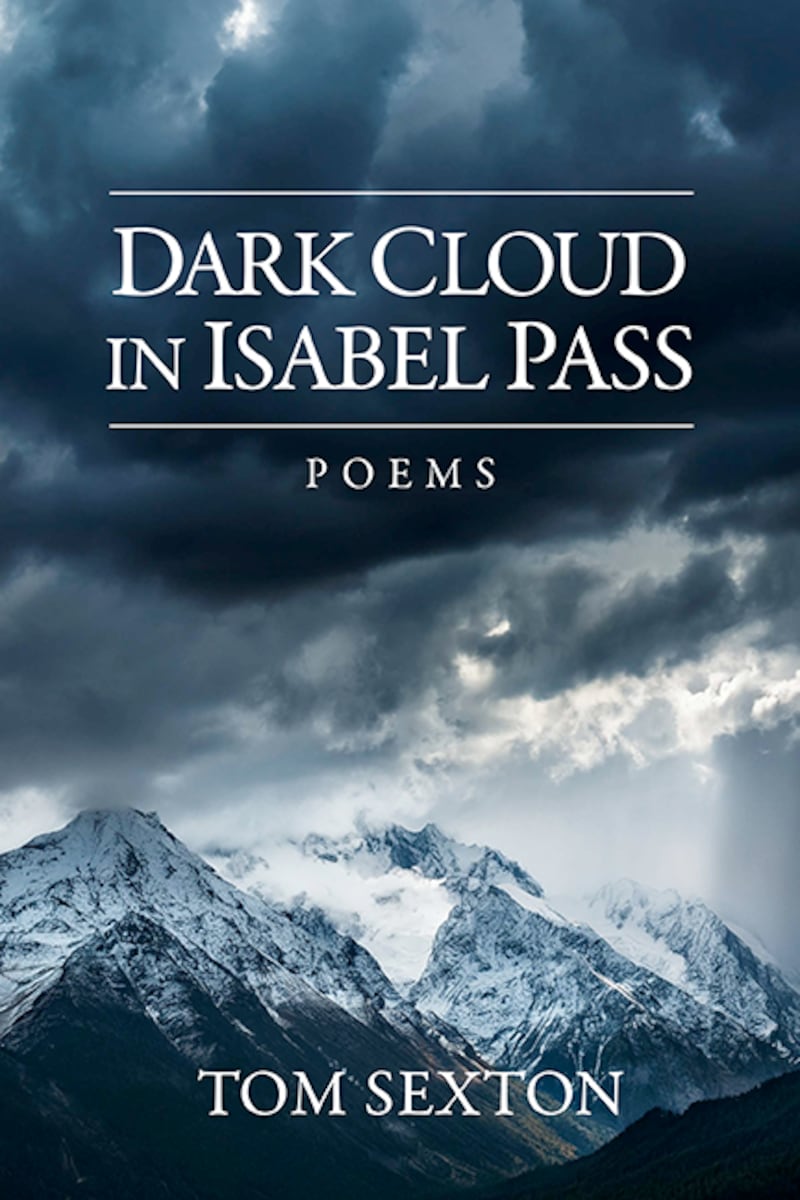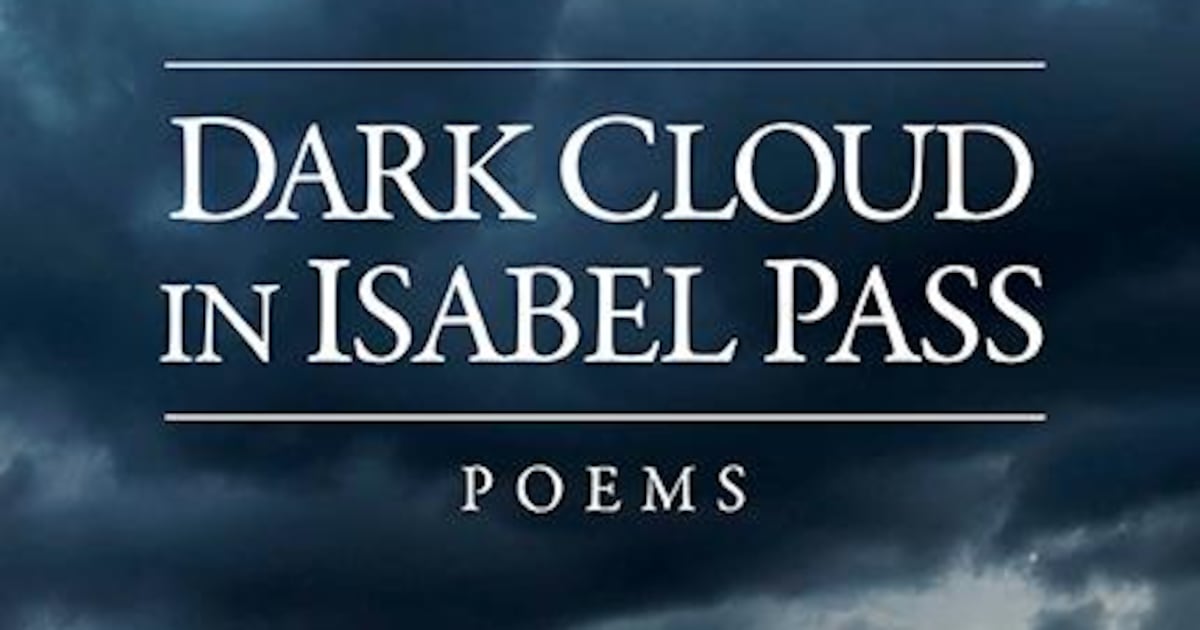“Dark Cloud in Isabel Pass”

By Tom Sexton; Loom Press, 2025; $20; 87 pages.
Tom Sexton, who died last March at the age of 84, was a much-loved poet who established the University of Alaska Anchorage’s creative writing program in 1970 and taught there until his 1994 retirement. Only after his retirement did he devote himself to his own poetry, completing 18 books in rapid succession. Honored as Alaska’s Poet Laureate from 1995 to 2000, he’s known for his attention to detail, especially in nature, and his affinity with the ancient Chinese poets.
Sexton’s last book, published posthumously, demonstrates both of these characteristics. In three sections, “Dark Cloud in Isabel Pass” applies a clear, empathetic eye to both the natural and human-shaped worlds Sexton inhabited.
The first and largest section here presents poems of Alaska and elsewhere in the North, while the third section takes readers to the East Coast, where Sexton and his wife lived seasonally in recent years. The short middle section looks to the other east, that of the Chinese poets. The poems throughout are nearly all personal, the poet speaking as himself about what he observes and thinks.
Sexton was known for composing poems on walks from his Anchorage home, and a number of poems in the first section suggest this. “Green-winged Teal,” written, like many in the book, as an octave, a poem of eight lines, commemorates such a walk. “It’s after supper, a good time for a walk / along the small stream near my house / where yesterday I saw a green-winged teal / followed by six chicks swimming upstream / in an unwavering line, a downy arrow. / I’ll sit by the stream and do nothing. / That’s what poets do, some poets anyway. / One time I saw not one but two rainbow rise.”
Sexton had a gentle humor, as shown in the teal poem and again in one titled “SpaceX” in which he waits “by the window for the moon to rise,” thinking of Elon Musk and his ambitions. “… then with a slight catch in my throat I recite / a poem that Matsuo Basho composed in its honor, / a poem about moonlight falling on a cottonfield.”
Yet another, “Seamus Murphy and the Otters,” tells of chasing his dog’s ball — the dog is Seamus Murphy — into a creek and encountering a group of hissing river otters swimming toward him. “I couldn’t run so I told them the story / of St. Cuthbert and the otters who / warmed the saint’s feet with their breath / when he staggered from the icy sea …” The otters “appeared to be thinking that over” before swimming away. “It pays to be a bookish man I said to Seamus / before, ball in hand, I waded back to shore.”
Several poems contemplate aging. An octave, “Approaching my Eightieth Year,” has the poet walking by a stream and watching mist rise from the last of the winter’s snow. It ends, “That Greek philosopher, Heraclitus, was right: / You can’t step in the same river twice. / I’m about to turn 80, and I’m contemplating / letting my hair grow longer, letting it flow.”
The Maine poems seem as fondly written — nostalgic even — as the Alaska ones. In a rare rhyming one, Sexton watches an apple picker from the comfort of his warm car. “I watched as his knees seemed to buckle / when he bent over to lift his bucket. / His long white hair trailing like a comet’s tail / in the wind-driven rain just turning to hail.” In another he observes an abandoned building where he imagines accountants tallying herring catches, in another a neighbor and his refinished dory, and in another a snowman standing in wind far from town. Two poems are set in Maine graveyards — one with a gravedigger digging a hole for an urn and another in which the poet studies a gravestone for a man who died in 1800.
The Isabel Pass of the book’s title, a pass in the eastern Alaska Range, appears unexpectedly in the book’s middle section. Here is “Through Slanting Rain” in traditional couplets: “By a stream below an abandoned beaver dam, / one white iris about to open, // a rare circumpolar wanderer, almost a ghost. / Was this the iris those Tang Dynasty poets, // boney old men still capable of wonder, / climbed all night through slanting rain to see. // They’d have understood the madness of our time. / Dark cloud in Isabel Pass, bitter wind rising.”
The Tang Dynasty was a tumultuous time, when poets were seen as exiles and migrants. Readers may pause with this poem to think about wanderers, ghosts, old men, dark clouds and rain, and “the madness of our time.” Like most of Sexton’s poems, this seemingly simple one bears repeated readings and contemplation.
An introduction to the collection by Mike McCormick of Eagle River adds context to the work and to Sexton’s beginnings and long life. Readers are fortunate to receive this final gift from a gifted and generous poet.

